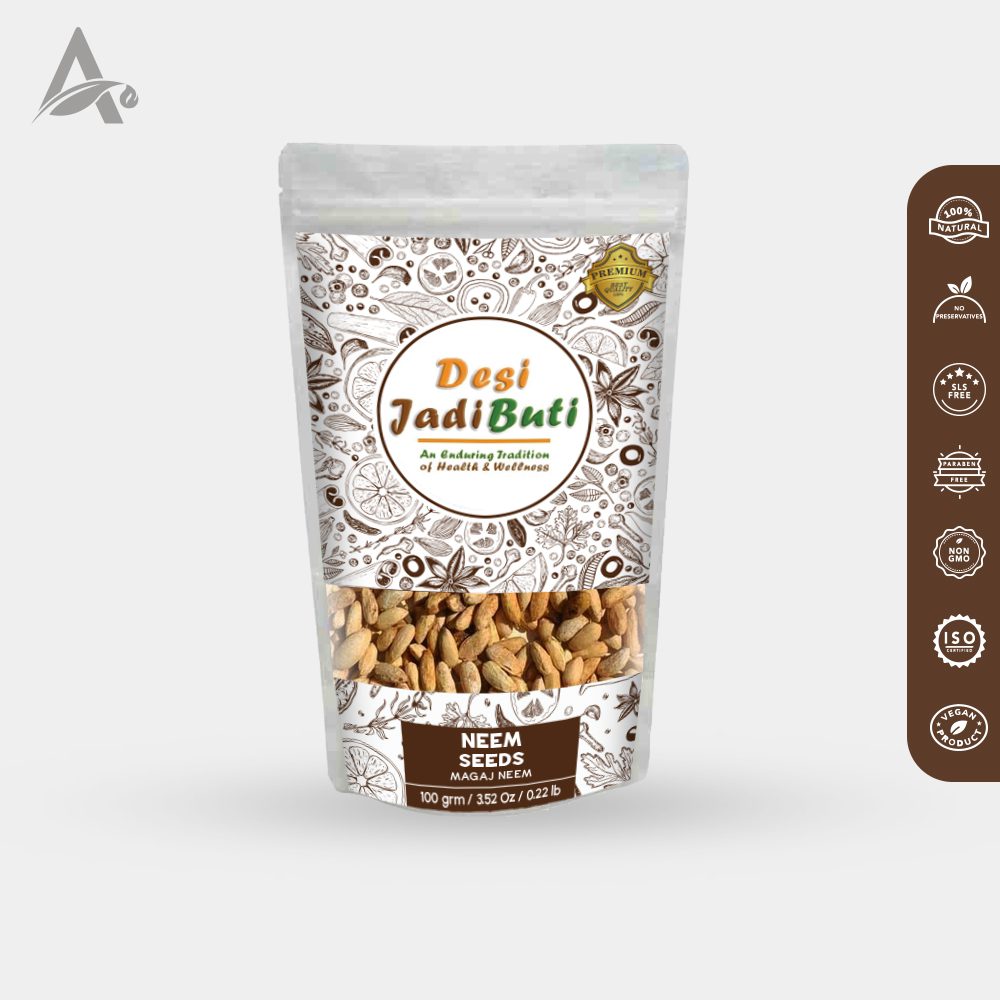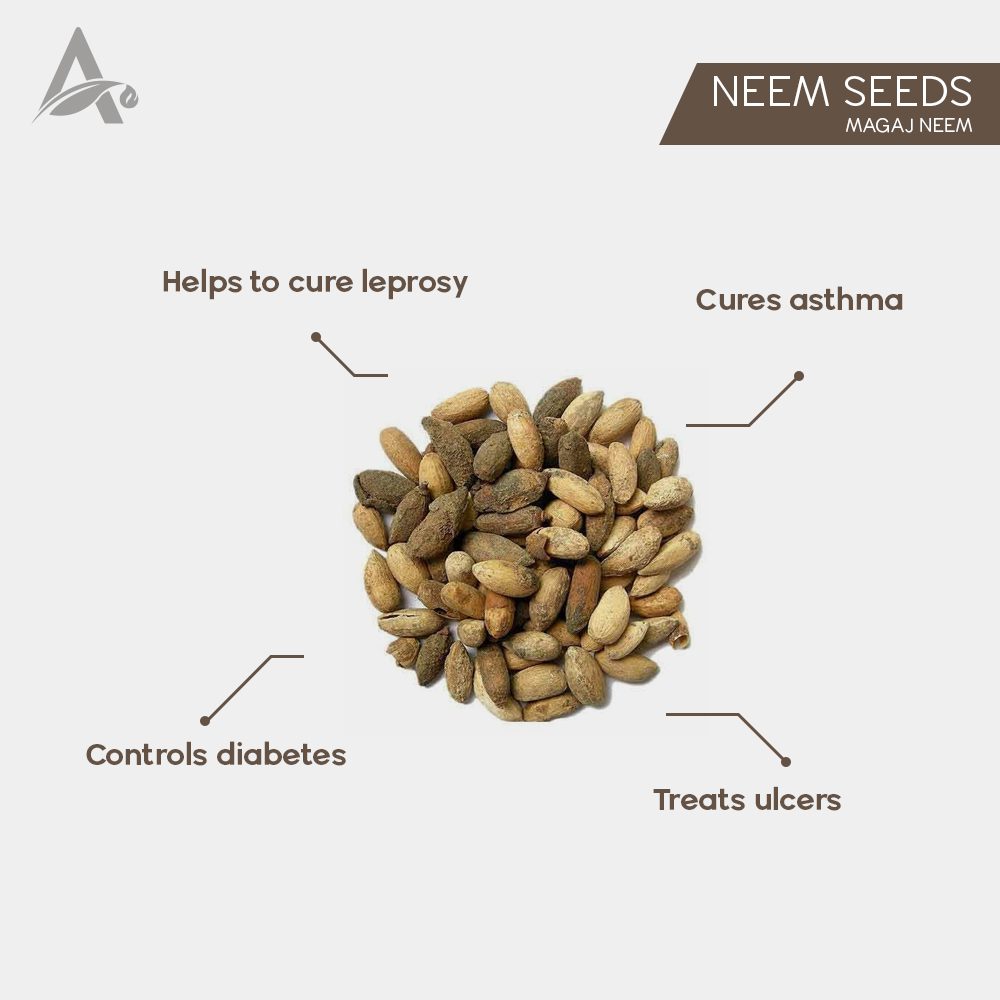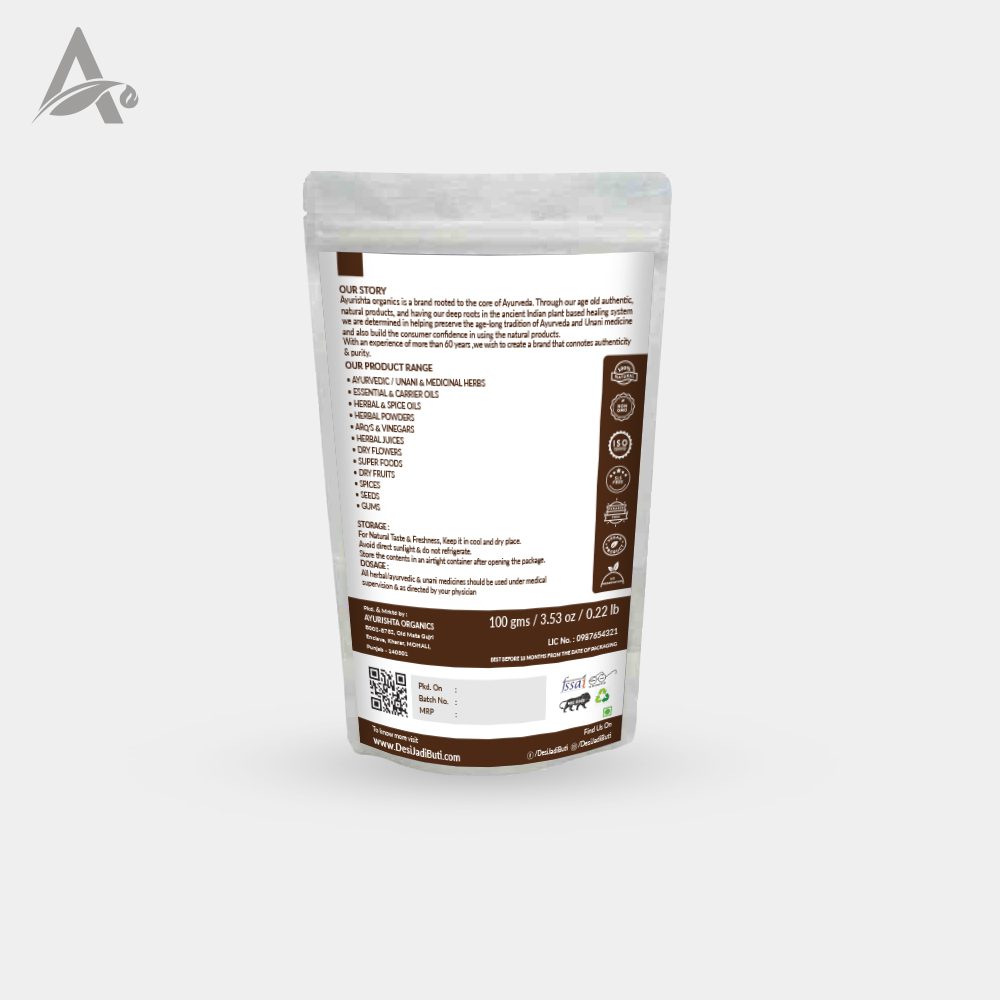No products in the cart.
NEEM BEEJ – NIMBOLI – MAGAJ NEEM – NEEM GIRI – NEEM SEEDS – AZADIRACHTA INDICA
$2.73 – $10.50
Neem Seeds is very important both because of its high lipid content as well as the occurrence of a large number of bitter principles (azadirachtin, azadiradione, fraxinellone, nimbin, salannin, salannol, vepinin, vilasinin, etc. in considerable quantities. Azadirachtin has proven effectiveness as a pesticide against about 200 insect species and is reported as non-toxic to humans.
Neem kernel lipids are similar to the normal glycerides from other oilseeds and contains oleic acid (50-60%), palmitic acid (13-15%), stearic acid (14-19%), linoleic acid (8-16%) and arachidic acid (1-3%). It is brownish yellow, non-drying oil with an acrid taste and unpleasant odor. The quality of the oil differs with the method of processing.
Benefits:
Helps us in preventing and curing the following:
- Neem seeds are anthelminitic, antileprotic, anti poisonous and bitter in taste.
- It extracts contain azadirachtin, which in turn works by inhibiting the development of immature insects.
- It is used in Pharmaceutical Industry, Food Industry, Cosmetic Industry etc.
- Neem leaves aqueous extract is rich in carbohydrates, pigments, water soluble amino acids.
- Large number of drugs and herbal medicines have Neem Seeds as their active ingredient.
Other Names:
Neem Seed, Neem Beej, Neem Giri, Niboli, Neem, Nim, Nimgach, Indian Lilac, Neem, Margosa, Azadirachta de l’lnde, Niembaum, Neembaum, Nimbaum, Limbro, Neem, Nimb, Bevu, Bevinamar, Neem, Melia azadirachta Linn, Nimb, Limb, Kadunimb, Balantanimb, Azad Darakhte Hindi, Nimb, Nim, Nimba, Nimbaka, Neem, Neeb.
Safety Information:
- For Natural Taste & Freshness, Keep it in cool and dry place.
- Avoid direct Sunlight & Do not Refrigerate.
- Store the contents in an Airtight Container after opening the package.
- All herbal medicine should be used under Medical Supervision only.


OOPS!!
You total cart weight has exceeded 1800 grams. Reduce it to max permissible value for COD fulfillment.


Important!!
We value your decision and will ship your product. Would you like to re-consider on paying ₹___ extra over & above product cost. You can save the same by opting a pre-payment.
Pre-Payment Continue with COD| Net Weight | 50 gm, 100 gm, 250 gm, 400 gm, 900 gm |
|---|
Only logged in customers who have purchased this product may leave a review.
Related products
$2.89 – $11.14
$2.57 – $8.88
$2.73 – $10.82
$2.57 – $9.69
$3.06 – $16.16
$5.16 – $51.74
$2.73 – $10.50
$2.73 – $10.50
$2.57 – $9.69
Seeds
$3.06 – $16.00
$3.70 – $24.24




























































































Reviews
There are no reviews yet.